Technologies
Unimantic Protocol Updates MEV Bots With New Features and Improved Security
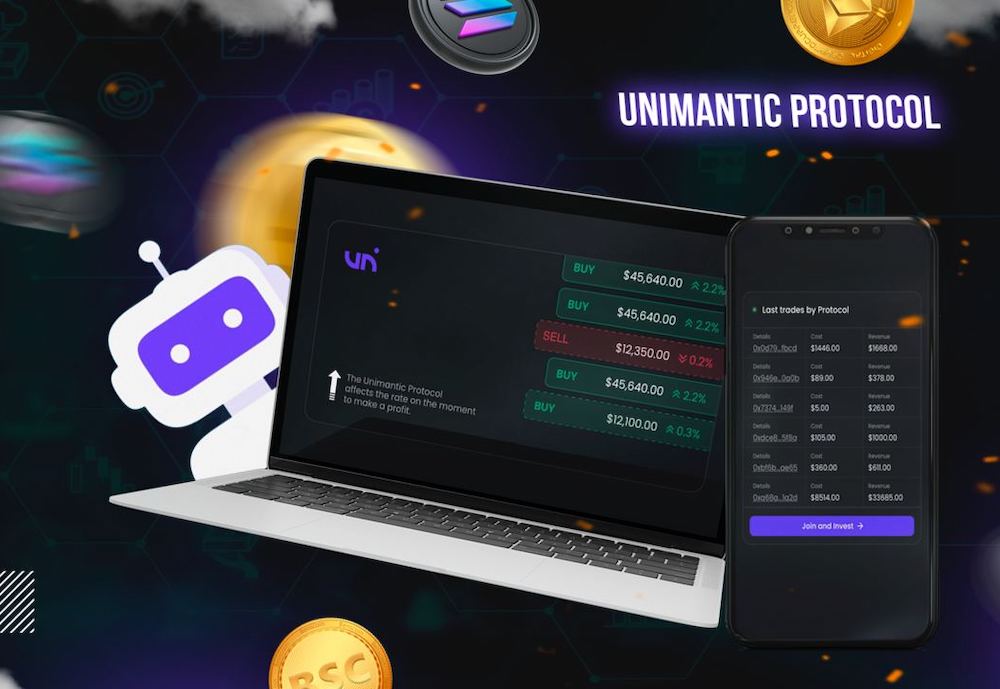
Unimantic Protocol, a leader in automated trading on the cryptocurrency markets, has released an update to its MEV Bot software. These bots, known for their ability to extract maximum value (MEV) from transactions, have received a number of enhancements that make their operation even more efficient and secure.
What are MEV Bots?
MEV bots, or sandwich bots, automate the process of “sandwiching” transactions by inserting their transactions before and after target transactions in a mempool. This allows the bots to profit from price changes caused by large orders.
Technical Improvements:
- Machine learning in mempool analysis: Bots now use machine learning algorithms to more accurately predict market changes and quickly identify target transactions.
- Transaction Speed Optimization: The reaction time for bots to identify a target transaction has been significantly reduced, thus lowering the risk of competition and increasing the chances of successful execution of sandwich transactions.
- Enhanced Security: New security mechanisms, including multi-factor authentication and data encryption, have been implemented to protect bots from attacks.
- Multi-chain Support: Updated bots can now run on multiple blockchain networks simultaneously, including Ethereum, Binance Smart Chain and Solana, expanding the number of available sandwiching options.
- Adaptive Strategies: Bots now have the ability to dynamically change their parameters based on current market conditions, allowing them to respond to market changes more effectively.
Example of operation:
- Target Detection: a MEV bot monitors a mempool and detects a large purchase of Token A that is likely to cause the price of the token to rise.
- Bot’s first transaction: The bot immediately sends a transaction to buy Token A at the current price.
- Target transaction: The next transaction is an initial large purchase of token A that causes the price to rise.
- Bot’s second transaction: The bot sends a transaction to sell Token A at the new, higher price, capitalizing on the price spike.
Conclusion
With the new update, Unimantic Protocol MEV bots become even more powerful tools for automated trading. These improvements provide users with not only increased profits, but also a high level of security. Unimantic Protocol continues to lead the way in innovation, providing its investors with the most advanced technology for successful trading in the cryptocurrency markets.
Technologies
Discover the Future of Trading with AXL Finance

Welcome to AXL Finance, where innovation meets excellence in the trading world. As a leading tech company, AXL Finance has spent the past eight years developing a unique trading platform designed to simplify the trading experience for clients across the globe. Our mission is to make trading easier, more accessible, and more profitable for everyone, from beginners to seasoned professionals.
At the core of AXL Finance’s success is our cutting-edge AI algorithms, which have been meticulously crafted to analyze market data with unparalleled precision. These algorithms have an impressive success rate of over 93%, providing traders with insights and opportunities that were once out of reach. By leveraging advanced machine learning and artificial intelligence, our platform can predict market trends and make informed decisions, ensuring that our users stay ahead of the curve.
Our trading platform is designed with the user in mind. The intuitive interface and robust features make it easy for traders to navigate the complexities of the financial markets. Whether you are trading forex, cryptocurrencies, or CFDs, AXL Finance provides the tools and resources you need to succeed. Our platform supports a wide range of trading instruments, allowing users to diversify their portfolios and take advantage of various market opportunities.
One of the standout features of AXL Finance is our comprehensive web application. Accessible from any device with an internet connection, our web application ensures that you can manage your trades from anywhere in the world. This level of accessibility and convenience is crucial in today’s fast-paced trading environment, where timely decisions can make all the difference.
But we are not stopping there. AXL Finance is excited to announce the upcoming launch of our dedicated mobile app. This app will bring the full power of our trading platform to your mobile devices, allowing you to trade on the go. With real-time notifications, advanced charting tools, and seamless integration with our web platform, the mobile app will provide a comprehensive trading experience at your fingertips.
Security is also a top priority at AXL Finance. We employ state-of-the-art encryption and security protocols to ensure that your data and transactions are protected at all times. Our commitment to security and transparency has earned us the trust of traders worldwide, and we continue to strive for excellence in all aspects of our service.
Join the growing community of traders who trust AXL Finance for their trading needs. Our platform’s combination of cutting-edge technology, user-friendly design, and exceptional performance sets us apart in the industry. Experience the future of trading with AXL Finance, where innovation, reliability, and success converge.
Stay tuned for more updates and get ready to elevate your trading journey with AXL Finance. Our web application is available now, and our mobile app will be launching soon, bringing even more flexibility and power to your trading experience. With AXL Finance, the future of trading is here.
Technologies
Propeller Launches as First dApp Built on River Protocol
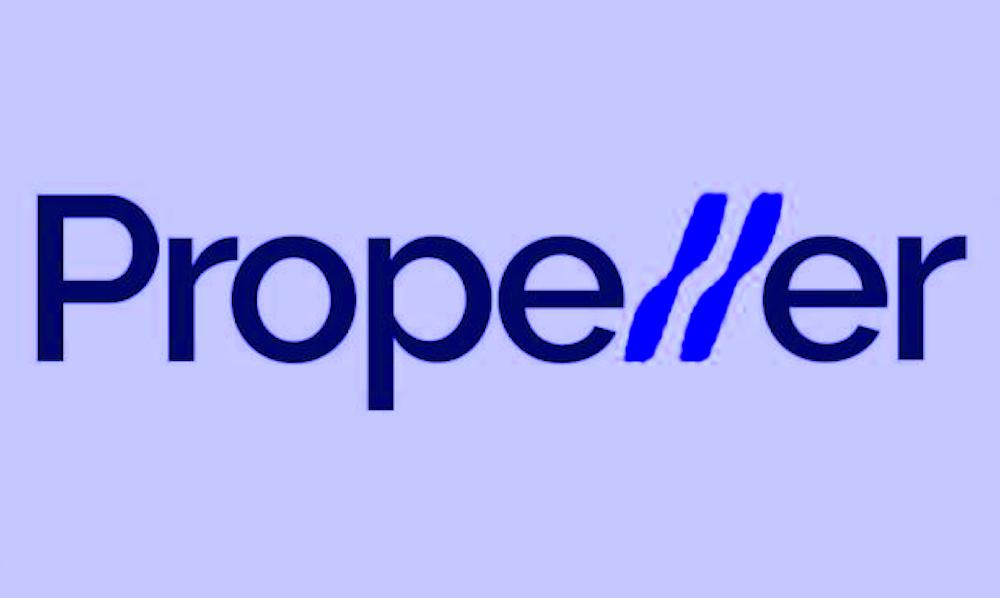
New Web3 Community Platform Aims to Improve Product Feedback and User Engagement
Today, LCA announces the launch of Propeller, the first decentralized application (dApp) built on the open-source communications protocol, River. Propeller is set to transform the way product teams engage with their users, gather meaningful product feedback, and build community.
LCA, renowned for collaborating with top brands like Nike, Reddit, Dropbox, Opensea, and Moonpay, has been consistently developing innovative, community-centric products. Propeller represents an opportunity for legacy social platforms to step into the next phase of community collaboration, emphasizing purpose-built online spaces designed to meet the unique needs of specific communities.
“LCA was founded with the mission of connecting the disconnected through products that bring people together,” said Greg Isenberg, CEO of Late Checkout. Propeller is all about helping early-stage product teams connect directly with users who love (and hate) them. We’re thrilled to see Propeller launch on the River Protocol, focusing on privacy, security, and giving users real ownership in the community. It’s a new era for feedback.”
Propeller challenges the status quo of one-way user feedback systems by facilitating dynamic conversations between users and product teams. On Propeller, users can interact directly with team members, share ideas, and engage with other power users, all while being rewarded for their valuable input. This community-driven approach ensures that feedback is not only collected but acted upon, fostering a sense of belonging and investment among users.
Brian Meek, co-founder and CTO of HNT Labs, the web3 venture studio behind the River Protocol, highlighted the significance of this launch: “The River Protocol was designed to empower communities with enhanced privacy, security, reputation, and ownership. Propeller is a perfect example of how these principles can be applied to create a more engaged and valued user base. We are thrilled to support Propeller as the first dApp on our protocol and look forward to seeing its impact on community engagement and product development.”
With River’s token-gated memberships and on-chain verification, Propeller ensures that product feedback comes from verified community members. Each membership exists as a non-fungible token (NFT), providing proof of early adoption and enabling users to gain reputational value. This integration allows for exciting future opportunities, such as gifting and airdropping rewards based on reputation, granting access to exclusive communities, and offering new feature previews to top contributors.
Propeller is a community platform aimed at enhancing user engagement and collaboration between users and product teams. By leveraging the capabilities of the River Protocol, Propeller is creating a new standard between companies and their most dedicated users, ensuring that every voice is heard and every contribution is recognized.
For more information about Propeller and to see product examples, users can visit propeller.chat.
To get started with River, users can visit river.build.
About LCA
LCA is a product innovation agency under the Late Checkout holding company umbrella. Founded in 2020 by Greg Isenberg and Theo Tabah, LCA is the industry leader in developing ‘Community-Based Products’. Over the last 4 years they have partnered with some of the world’s most notable brands to define their futures and build products their communities love.
About HNT Labs
Here Not There Labs (HNT) is a web3 venture studio dedicated to digital communication innovation, helping online communities engage more efficiently and effectively. HNT Labs has built the on-chain communication platform, Towns, which is built on the open-source protocol, River. HNT is crafting novel communication models that empower online communities with programmable, self-governed spaces, fostering authentic and meaningful interactions. With a commitment to shaping the future of digital connectivity, HNT is supported by significant investment, including a $25.5 million Series A funding from notable firms like a16z crypto, Benchmark, and Framework.
Technologies
LibertAI Launches Decentralized AI Ecosystem Powered by Base, Prioritizing Privacy and Open-Source Development
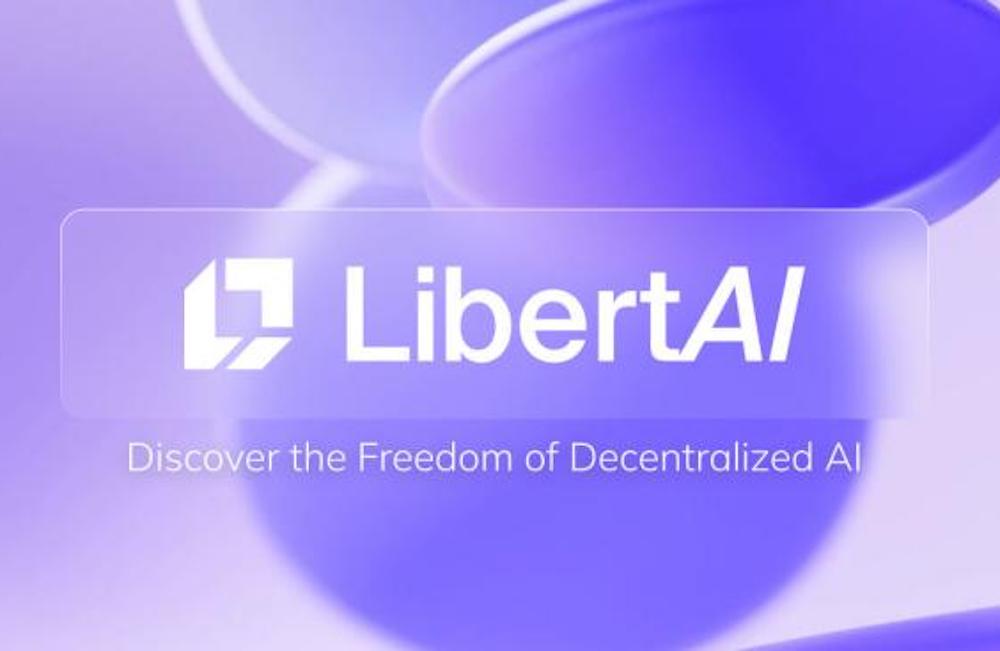
LibertAI’s Native Cryptocurrency Will Unlock Premium Features and Reward Its Developers and Users
LibertAI, the decentralized AI platform built on the Aleph.im decentralized cloud computing network, is excited to announce the integration of its native token on Coinbase’s Layer 2 blockchain, Base. LibertAI sets new standards for AI development and adoption by addressing core industry challenges through privacy prioritization, open-source development, and a robust decentralized infrastructure.
The AI landscape is dominated by monopolistic private companies, where issues like spying, bias, censorship, and data breaches are common. Developers are limited by the lack of transparency, flexibility and high costs associated with computational power.
“To compete with the large monopolistic companies dominating the AI industry, we need more awareness around AI privacy and the right foundations to enable this vision. It’s a big challenge that we’re undertaking, and by leveraging some of the most thriving ecosystems like Base by Coinbase, we hope to achieve this level of awareness with a mainstream audience”, said Jonathan Schemoul, lead contributor to LibertAI and co-founder of aleph.im.
AI Ecosystem Powered by Base, Coinbase’s Layer-2 and aleph.im computing DePIN
LibertAI first launched a chat app and APIs to offer offers an open-source and private alternative to ChatGPT and Meta AI; gathering over 1.7 million successful text completions on its LLMs.
LibertAI is now deploying a full-fledged ecosystem to enable open-source development of hybrid AI and Web3 applications, which includes:
- AI Engine: The core network powering various AI functionalities with open-source models for creating personalized AI personas and native web3 applications. Thanks to its native crypto rails and programmability this AI engine can fully automate workflows, access computing power more easily and even empower AI agents to pay for their computing resources.
- AI Agents Framework: Multiple personalized GPTs performing specific assigned tasks.
- Confidential Inference: LibertAI ensures data is always encrypted and privately stored on distributed computing networks. The platform’s integration with Aleph.im computing DePIN secures the mapping and training of AI data, and offers distributed CPU and GPU fpr cost-effective AI. Aleph.im counts esteemed clients and partners like Ubisoft, Synaps, and Request Network.
- $LTAI Token: Facilitates native payment rails and extended decentralized financial applications (DeFi). The $LTAI token deployed on Base, grants access to advanced models and features, a personalized knowledge base, tiered API plans, rewards for hardware provisioning and model improvements, and the deployment of agents on the network.
Future Use Cases for LibertAI
Key applications empowered by LibertAI’s unique Web3 capabilities include securely processing private data for companies, provable AI decision-making for DAOs, AI-managed autonomous organizations, and creating NFTs with verified generative biographies for gaming.
LibertAI is deploying its native $LTAI token on Base, Coinbase’s Layer 2 network, to leverage its robust DeFi ecosystem. Base can support the automatic conversion of LibertAI into other tokens for payments, stablecoin conversion, and seamless payment flows using Superfluid. It also supports lending and borrowing of the LibertAI token, creating a self-sustaining economy for AI agents.
For more information, users can visit https://libertai.io/
About LibertAI
LibertAI a decentralized AI system, has the potential to be more secure, accessible, resilient, and efficient than a centralized system, while also reducing the risk of bias and protecting the privacy of users.Libertai large language models are running on a set of technologies such as IPFS in combination with aleph.im. It effectively runs on a fully decentralized, uncensored, secure and resilient computing network that is practically unstoppable.
About Aleph.im
Aleph.im is a decentralized physical infrastructure redefining data management and computing in the blockchain ecosystem. It ensures operational resilience for applications, particularly in AI, DeFi, and gaming industries. Aleph.im works with Ubisoft, Solana, Request Finance. Since 2020, its marketplace has provided scalable, high-performance Instances and Micro-Virtual Machines resources on several networks such as Ethereum (and its L2s), Avalanche Solana, Cosmos or Tezos.
Web: https://aleph.im
Twitter: https://twitter.com/aleph_im
Technologies
Electrocoin Launches Its New Cryptocurrency Exchange Platform, Electrocoin Trade
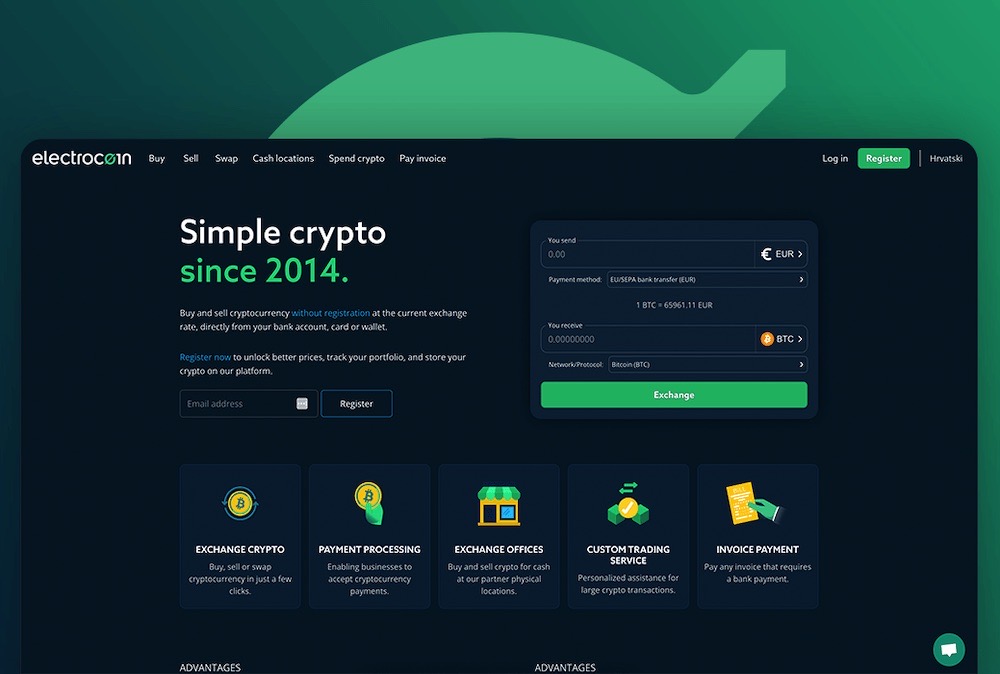
One of the biggest cryptocurrency exchange services in Croatia, Electrocoin, has recently launched their new cryptocurrency exchange platform called Electrocoin Trade, providing services for natural and legal clients in the EU.
The platform includes two core services – cryptocurrency exchange and trading service without prior registration to the platform, and cryptocurrency exchange and trading service for registered users. This way, and following the recent regulatory development in the area of crypto regulation, Electrocoin introduced the new custodial model to their service, allowing them to act as a custodian for the assets clients chose to hold on their Electrocoin Trade accounts. By registering with Electrocoin Trade, users get to entrust their cryptocurrencies for safekeeping to a highly regulated platform, as they also get access to additional trading and user experience benefits such as lower trading fees and cryptocurrency portfolio monitoring.
Regardless of the new service, Electrocoin decided to keep the old service as well – any adult citizen in the EU can buy, sell, or trade cryptocurrencies up to 1000 euros without verification or prior registration on the platform. This way, Electrocoin wanted to ensure their existing and future users had an option where they could still access crypto even if they would rather not register with the new platform. This service is possible due to regulatory approval for KYC-less money exchange under certain thresholds.
The platform supports cross-chain transfers and coin-to-coin swaps through a variety of protocols, including ERC-20, Polygon, BEP-20, and many more. Furthermore, with the release of the new platform, Electrocoin has also introduced one new service – paying bills with cryptocurrencies. Users of the platform can use their cryptocurrencies to settle any invoice that can be paid by bank transfer within the EU/SEPA zone. That being said, utility bills such as electricity, water, or internet, or even personal expenses such as vehicles or even real estate, can be paid with cryptocurrencies – as long as the payment recipient has a bank account number.
Electrocoin was founded back in 2014 and has since become an industry leader, introducing PayCek, a crypto payment processor, in 2018. and now the new cryptocurrency exchange platform. The company is committed to communication with the regulator and today, they count over 250,000 successful transactions, along with 24/7 available customer support with an average chat response time of one minute. Electrocoin Trade positions itself as a competitor to other top-tier European cryptocurrency exchanges, with the feature enabling the cryptocurrency exchange without prior identification specifically standing out.
Get started with crypto and visit Electrocoin Trade now!
Technologies
Persistent Launches GenAI Hub to Power New Era of Enterprise AI Adoption

Persistent Systems and a global Digital Engineering and Enterprise Modernization leader, announced the launch of GenAI Hub, an innovative platform designed to accelerate the creation and deployment of Generative AI (GenAI) applications within enterprises. This platform seamlessly integrates with an organization’s existing infrastructure, applications, and data, enabling the rapid development of tailored, industry specific GenAI solutions. GenAI Hub supports the adoption of GenAI across various Large Language Models (LLMs) and clouds, without provider lock-in.
To effectively leverage the potential of GenAI and translate ideas into tangible business outcomes, enterprises must seamlessly integrate it into their existing systems. With a wide array of AI models ranging from extensive to specialized, clients require a robust platform like the GenAI Hub. This platform simplifies the development and management of multiple GenAI models, expediting market readiness through pre-built software components, all while upholding responsible AI principles.
The GenAI Hub is comprised of five major components:
- Playground is a no-code tool for domain experts to explore and apply GenAI with LLMs on enterprise data without the need for programming skills. It provides a single uniform interface to LLMs from private providers like Azure OpenAI, AWS Bedrock, and Google Gemini, and open models from Hugging Face like LLaMA2 and Mistral.
- Agents Framework provides a versatile architecture for GenAI application development, leveraging libraries like LangChain and LlamaIndex for innovative solutions, including Retrieval Augmented Generation (RAG).
- Evaluation Framework uses an ‘AI to validate AI’ approach and can auto-generate ground-truth questions to be verified by a human-in-the-loop. It employs metrics to track application performance and measures any drift and bias that can be addressed.
- Gateway serves as a router across LLMs, enabling application compatibility and improving the management of service priorities and load balancing. It also offers detailed insights into token consumption and associated costs.
- Custom Model Pipelines facilitate the creation and integration of bespoke LLMs and Small Language Models (SLMs) into the GenAI ecosystem, supporting a streamlined process for data preparation and model fine-tuning suitable for both cloud and on-premises deployments.
The GenAI Hub streamlines the development of use cases for enterprises, offering step-by-step guidance and seamless integration of data in LLMs, enabling the rapid creation of efficient and secure GenAI solutions at scale, whether for end users, customers, or employees.
Praveen Bhadada, Global Business Head – AI, Persistent: “At Persistent, we have always stayed ahead of the curve to capitalize on the latest industry technology trends, and now we’re reaching new frontiers in GenAI to solve critical enterprise challenges and turbocharge client growth. With the Persistent GenAI Hub, clients can embrace a “GenAI-First” strategy, delivering AI-powered applications and services at scale. They can accelerate innovation while practicing responsible AI, leveraging pre-built accelerators and evaluation frameworks, and optimizing costs with a cross-LLM strategy. The GenAI Hub enables enterprises to streamline operations, enhance customer experiences, and identify new avenues for growth.”
Mark Troller, CIO, Tangoe: “Tangoe has been leading the industry in automation for more than a decade, and with Persistent’s expertise and support, we have developed a secure generative AI chatbot that empowers employees to drive higher efficiency in their daily work. This collaboration has not only opened new doors for innovation but also sharpened our competitive edge. We’ve seen strong early adoption from our employees and look forward to building more advanced capabilities using this emerging technology.”
Thomas Reuner, Executive Research Leader and Head of EMEA, HFS Research: “We are seeing a shift in the market as organizations look to scale out their GenAI deployments. A pause of reflection often follows this shift as they encounter new deployment challenges and risks. Persistent’s GenAI Hub provides both an evaluation framework to validate the AI approach and a comprehensive set of capabilities to accelerate the time to value to help organizations navigate those challenges.”
About Persistent
With over 23,800 employees located in 21 countries, Persistent Systems (BSE & NSE: PERSISTENT) is a global services and solutions company delivering Digital Engineering and Enterprise Modernization. As a participant of the United Nations Global Compact, Persistent is committed to aligning strategies and operations with universal principles on human rights, labor, environment, and anti-corruption, as well as take actions that advance societal goals. With 268% growth since 2020, Persistent is the fastest-growing Indian IT Services brand according to Brand Finance.
Website: www.persistent.com
Technologies
Orbs Liquidity Hub Expands to Fantom and Integrates With SpookySwap
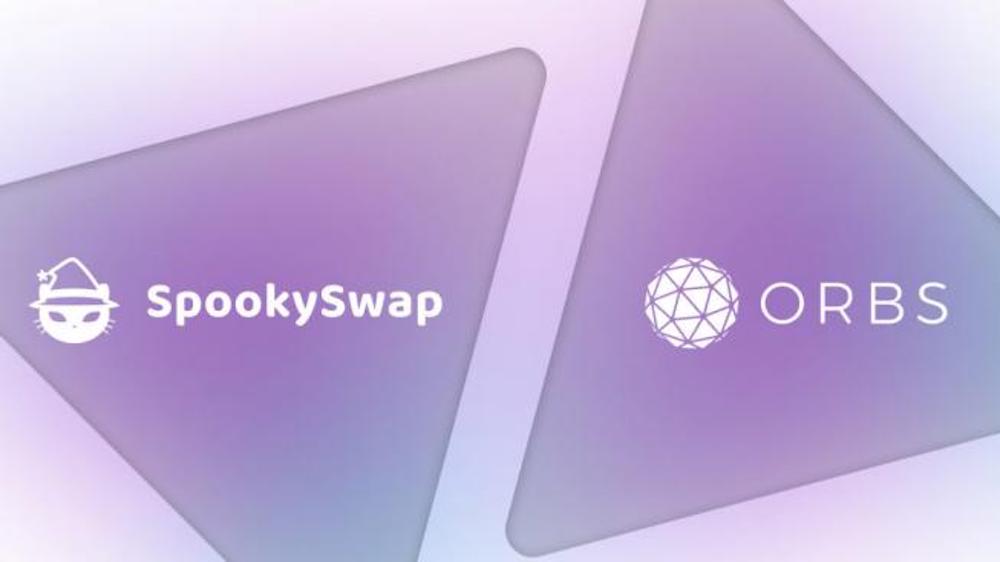
Leading Fantom AMM SpookySwap has announced the integration of Orbs’ flagship L3 protocol, Liquidity Hub. The addition of Orbs’ Liquidity Hub to SpookySwap will allow Fantom users to optimize their onchain trading while incentivizing liquidity providers.
The rollout of Liquidity Hub enables SpookySwap users to access deeper liquidity procured from a broad range of onchain protocols on Fantom. Powered by Orbs’ advanced L3 technology, the solution provides significant improvements in pricing, resulting in an enhanced user experience.
The expansion of Orbs Liquidity Hub to Fantom marks the technology’s fifth deployment on an EVM chain and is a milestone in providing SpookySwap users with greater control when executing token swaps. In addition to supporting more efficient pricing, Liquidity Hub protects against Maximal Extractable Value (MEV), enables gasless trades, and delivers enhanced capital efficiency within a streamlined user interface.
As a fully decentralized and interoperable protocol, Orbs Liquidity Hub allows DEXs to draw liquidity from a combination of on- and off-chain sources. This is achieved without incurring custodial risk or compromising on the permissionless design that is inherent to the value proposition of DeFi. SpookySwap users can now access these new features and benefits without incurring any additional costs.
Liquidity Hub operates as an L3 that forms an optimization layer above the AMM. It taps into external liquidity to deliver better price quotes, allowing trades to be executed with less slippage. As a result, traders can capture more value from every swap they make.
Liquidity Hub harnesses third-party solvers who compete to fill swaps with liquidity procured from AMM pools or their own private inventory. It also enables decentralized orders to be accessed via API, allowing institutional and professional traders such as market makers to submit bids and compete to fill swaps. If the layer cannot execute the trade at a better price than the AMM, the transaction will return to the AMM contract and execute as normal.
From a user perspective, Liquidity Hub maintains SpookySwap’s familiar user interface, ensuring a seamless and intuitive trading experience. Its introduction to Fantom follows similar integrations that include Quickswap on Polygon PoS and zkEVM, Thena on BNB Chain, and IntentX on Base, aggregating liquidity across multiple chains.
About SpookySwap
SpookySwap is an automated market-making (AMM) decentralized exchange (DEX) for Ethereum Virtual Machine (EVM) compatible networks. Different from other DEXs, Spookyswap invested in building a strong foundation with its BOO token as a governance token, diverse farms, a built in bridge, built in limit orders, and user-centered service.
Learn more: https://spooky.fi/
About Orbs
Orbs is a layer-3 public blockchain infrastructure project powered by PoS, pioneering on-chain innovation since 2017. Orbs is a separate execution layer on top of L1/L2 chains and under the application layer as part of a tiered blockchain stack, enhancing the capabilities of smart contracts and powering protocols such as dLIMIT, dTWAP, and Liquidity Hub. The project’s core team comprises more than thirty dedicated contributors from Tel Aviv, London, New York, Tokyo, and Seoul.
Learn more: https://www.orbs.com/
Technologies
MarketMind Technologies Unveils Beta Launch of GenAI Investor Relations Platform to Service the Increase in Retail Investors Growth
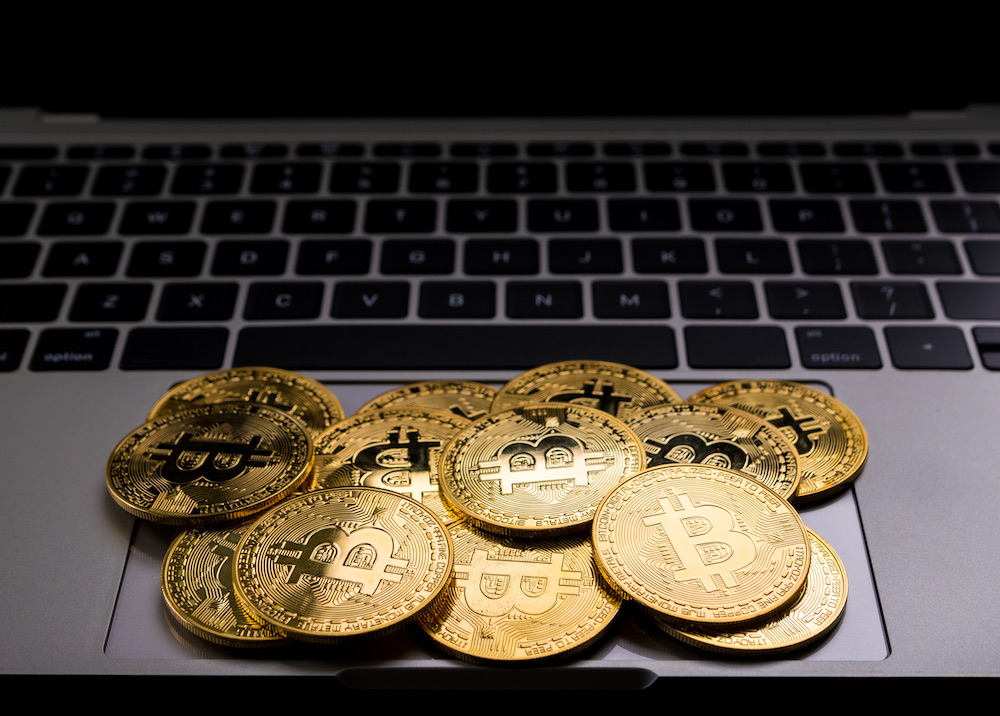
MarketMind Technologies Inc. unveiled a generative AI investor relations platform. The development of this groundbreaking technology is supported by investment from the Google Cloud for Startups program. Marketmindis backed by Alpha Transform Holdings, a prolific investor and advisor in financial technology and digital assets. The founders of MarketMind had leading corporate development and strategy roles at Nasdaq and the Toronto Stock Exchange where they lead the launches of investor relations products and services for their respective exchanges.
MarketMind integrates cutting-edge AI technology from Redis, Google, and Arhasi, a Redis partner and provider of platforms and products that enable secure, governed and compliant AI solutions. Engineering development for the platform comes from Cloudbench, a Google Cloud Partner specializing in AI and web3 technologies, utilizing its joint Frisco-based AI Foundry with Arhasi.
Retail investors now hold the majority of publicly-traded shares globally. This is creating a challenge for public companies as smaller investors are too numerous to engage with to the same degree as larger investors. As AI-generated content proliferates, all investors face an increased risk of being exposed to misinformation from third-party sources such as social media, message boards and third-party web commentary.
“MarketMind is solving this problem by building a network of generative AI-based chatbots and APIs that help public companies engage with each shareholder individually” commented Jeff Maser, CEO and Founder of MarketMind
“The chatbots are trained to provide additional, non-material commentary beyond what is available in public filings, akin to what larger investors benefit from in management meetings. This value-added content is generated via integration with companies’ investor relations and compliance workflows” he continued.
MarketMind IR’s chatbots are placed on issuers’ web sites as well as a third-party network of financial research sites, professional trading terminals, AI robo-advisors and Investor Relations technology platforms. Through these investor interactions, MarketMind helps companies build profiles of their investors and perform a suite of AI-driven analytics to provide a wide range of analysis on their shareholder bases. In doing so, it informs public companies on how to craft their corporate communications and gives them an unparalleled level of control over their messaging.
Key components of the MarketMind platform are provided by Redis. Used by 58% of Fortune 500 companies, Redis’ technology provides for low latency and seamless GenAI search capabilities. Compared with other vector databases, Redis provides 20X faster responses for Retrieval Augmented Generation (RAG) and integration with top GenAI frameworks like LangChain and LlamaIndex. Redis also reduces LLM costs by over 30% with their semantic caching.
Key features of Redis Vector Algorithms include:
1. HNSW (Hierarchical Navigable Small World) in Redis:
- Algorithm: Redis leverages the HNSW algorithm for approximate nearest neighbor (ANN) search, known for its efficiency and scalability.
- Performance: HNSW in Redis provides fast query times with logarithmic complexity, making it suitable for high-dimensional data.
- Scalability: Redis can handle large datasets with HNSW, leveraging its in-memory architecture for quick access and updates.
- Flexibility: The HNSW implementation in Redis allows dynamic updates, such as inserting or deleting vectors, without significant performance degradation.
2. Indexing and Search:
- Indexing: Redis uses vector indices that can be dynamically updated, allowing for real-time indexing and search.
- Search Options: Redis supports various search queries, including exact and approximate nearest neighbor searches, providing flexibility based on accuracy and performance needs.
- Integration: Redis integrates vector search with other data structures, enabling complex queries combining vectors with other data types (e.g., hashes, sets).
“Investor Relations is a relatively untapped use case for generative AI, despite public companies spending over $30 billion annually on it. Data infrastructure, including the fastest available vector database, plays a critical role in the success of AI solutions. Developing GenAI apps with Redis is simple, intuitive and easy to scale,” said Srikanth Matcha, Americas Channel Sales Leader, Redis. “Redis’ mission is to help companies build fast apps, fast so partners like Arhasi and innovative companies like Marketmind quickly bring the best products to market faster, in important industries like investor relations.”
“Coupling Arhasi’s AI frameworks and tools is the accelerator pedal for rapid AI adoption. They fuel efficient and secure GenAI models, empowering our foundry team to innovate swiftly and deliver robust AI solutions,” said Chiru Bhavansikar, Chief AI Officer of Arhasi. “The MarketMind AI IR platform offers companies a superior alternative for market messaging and investor guidance. Powered by cutting-edge Redis AI and data technology, this platform is poised to revolutionize the IR space completely.”
About MarketMind
MarketMind is a pioneering, generative AI-driven investor relations platform tailored for public companies, Reg A issuers and crowdfunded startups. In the dynamic landscape of investment decisions increasingly shaped by AI-generated content, MarketMind empowers issuers to better influence investment decisions by taking an unparalleled level of control over their corporate messaging. A key component of MarketMind’s service is a company-trained network of branded chatbots that provide personalized, one-on-one virtual interactions with thousands of retail investors, not influenced by potentially-misleading third-party information. The platform also sends company-controlled information to trading terminals and AI-driven financial analysis platforms including robo-advisors to better inform their users investment decisions. Moreover, it facilitates the integration of additional commentary on disclosure materials to give retail investors a level of insight that was traditionally accessible only to large institutional investors. Visit https://marketmind.live/
About Arhasi
Arhasi, a Redis partner and portfolio company of Alpha Transform Holdings, has platforms and products to enable secure, governed and compliant AI solutions. Their mission is to bring integrity to AI solutions to address the needs of enterprises. Discover more at www.arhasi.com.
About Cloudbench
Cloudbench is a Google Cloud partner and portfolio company of Alpha Transform Holdings at the forefront of value-driven emerging technology consulting empowering businesses to harness the limitless potential of AI, Data, and Web3. Their mission is to rapidly help small and medium clients enable, embrace, and manage AI and Data to unlock innovation and drive growth. Learn more at www.cloudbench.net.
About Alpha Transform Holdings
Alpha Transform Holdings (ATH) is an investment and advisory organization that focuses on fintech, AI and digital assets. ATH’s principals have a track record of early investment in ventures that reached unicorn status and other industry-leading ventures, and its principals take an active role in driving the success of their portfolio companies. Visit: https://www.alphatransform.io/
Technologies
Introducing SwapFast: Revolutionizing Cross-Chain Transactions
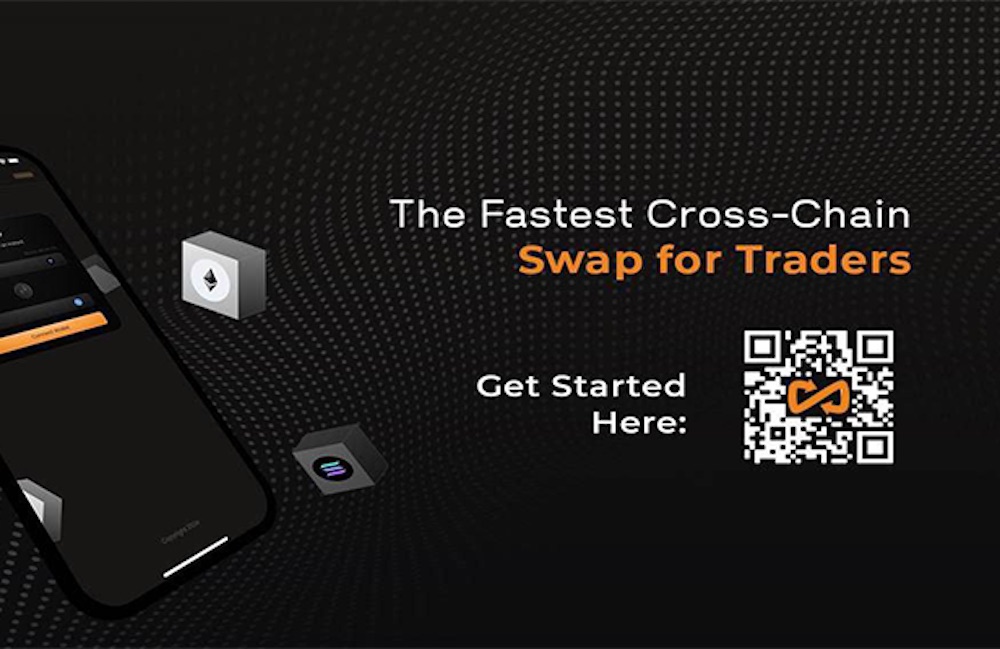
SwapFast, the innovative cross-chain aggregator, is set to transform the landscape of decentralized finance (DeFi) with its seamless interoperability and efficient transaction solutions. With its official launch, SwapFast offers users unparalleled access to a diverse array of blockchain networks, opening doors to limitless possibilities within the decentralized ecosystem.
Key Features:
- 2M+ Potential Users: A vast user base poised to benefit from SwapFast’s revolutionary capabilities.
- 10+ Supported Blockchains: Seamless interoperability across a wide spectrum of blockchain networks.
- 15+ Decentralized Exchanges (DEX): Access to a multitude of decentralized exchange platforms.
- 7+ Bridges: Facilitating smooth transitions between different blockchain ecosystems.
- 4.7 Rating out of 5: A testament to SwapFast’s reliability and user satisfaction.
- 100M+ Potential Trading Volume: Unlocking massive liquidity and trading opportunities for users worldwide.
About SwapFast:
SwapFast serves as a vital bridge between disparate blockchain ecosystems, empowering users to navigate the DeFi landscape with unprecedented ease and efficiency. By facilitating seamless asset exchanges and transactions, SwapFast plays a pivotal role in fostering greater adoption and accessibility within the decentralized finance realm.
Get Connected:
Website: http://www.swapfast.io/
Telegram: https://t.me/SwapFast_io
Twitter: https://x.com/SwapFast_io
Whitepaper: http://doc.swapfast.io/
Technologies
Cwallet Marketplace Launches: A New Frontier for Trading Emerging Crypto Tokens

Cwallet is thrilled to introduce its newest feature in the cryptocurrency landscape: the Cwallet Marketplace. As a unique trading platform within the Cwallet ecosystem, the Marketplace is specifically designed to cater to newly minted tokens that have yet to reach mainstream centralized exchanges. Primarily utilized on decentralized exchanges, these tokens now have a dedicated platform for trading, enhancing accessibility and providing early investment opportunities in potential-rich projects.
The Cwallet Marketplace operates as a direct peer-to-peer trading hub, facilitating transactions between buyers and sellers without intermediaries. Open to all registered Cwallet users, the platform allows easy buying by simply selecting tokens from the listing page. Sales are straightforward too—users can list tokens from their wallet or directly through token detail pages by setting the quantity and price. This ensures a transparent, user-friendly trading experience, completed typically instantly following standard verifications.
Highlighting its user-centric approach, the Marketplace charges minimal fees: only 0.3% to sellers upon successful transactions and 0.35% to buyers, promoting cost-effective trading practices. Cwallet’s commitment to innovation is evident as it continues to develop features that simplify the crypto trading process, eliminate common barriers, and enhance overall user satisfaction. Security remains paramount, with robust measures in place to protect users’ assets and information.
In addition to offering a unique platform for trading emerging tokens, Cwallet Marketplace is designed to foster a community of forward-thinking crypto enthusiasts who are eager to explore and invest in the next generation of digital assets. This community aspect is critical, as it provides a supportive environment where users can learn, exchange ideas, and grow their investments together. By integrating community feedback into ongoing platform enhancements, Cwallet ensures that the Marketplace evolves in alignment with user needs and industry trends.
Furthermore, Cwallet’s vision for the Marketplace extends beyond just a trading platform. It envisions creating an ecosystem where crypto transactions are not just about financial gains but also about promoting technological adoption and fostering a deeper understanding of blockchain technology. Through educational resources and continuous community engagement, Cwallet aims to empower its users to make informed decisions and maximize their investment potential.
Cwallet invites everyone to explore the exciting possibilities offered by the Cwallet Marketplace—where the potential of emerging crypto projects meets the opportunity for rewarding investments. As the platform grows, Cwallet remains committed to its mission of making cryptocurrency trading more accessible, secure, and beneficial for all. For more information, visit Cwallet’s website or contact our support team. Join us in shaping the future of cryptocurrency trading.
About Cwallet:
Cwallet is a pioneering crypto wallet platform committed to providing secure, efficient, and user-friendly solutions for managing and trading digital currencies. Founded in 2020, Cwallet has quickly become a trusted name in the cryptocurrency industry, known for its innovative approach and dedication to customer satisfaction.
Technologies
From Passive Views to Steady Income: HYDRO Unlocks the Power of User Engagement
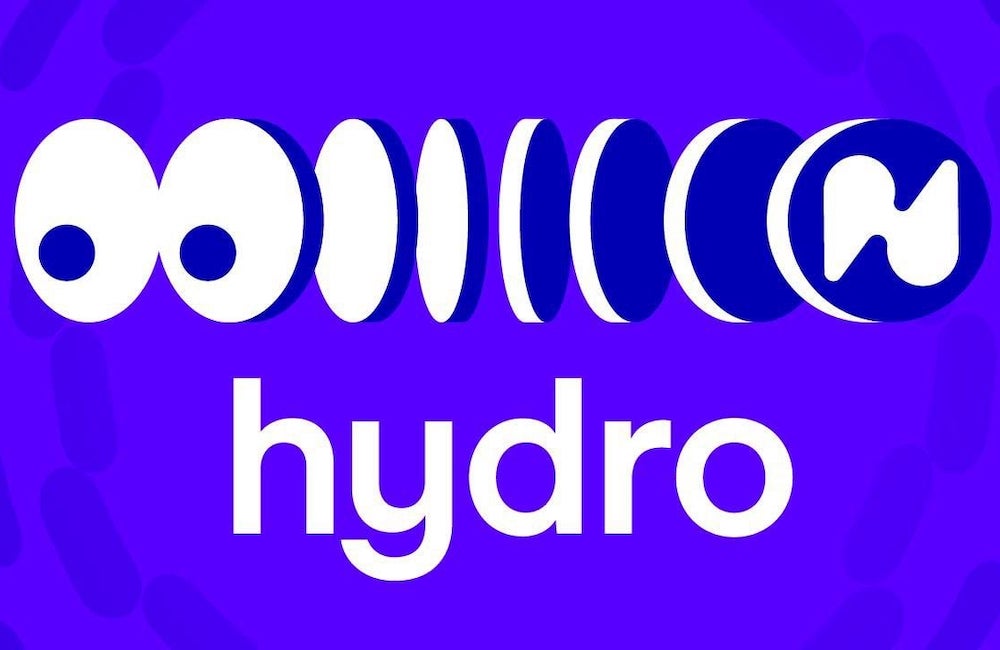
In today’s digital landscape, where website traffic can be fleeting, a new approach is redefining how online presence translates into tangible revenue. Introducing HYDRO Online, a platform that is designed to help publishers maximize users engagement into a steady stream of income.
The Engagement Advantage: Redefining Website Monetization
Traditional monetization methods like advertisements, paywalls, and subscriptions have presented limitations for small business owners, bloggers, and digital entrepreneurs. With HYDRO, revenue is tied to the quality of user interactions, converting every scroll, click, and view into a monetization opportunity rather than relying on mere visitor counts.
Seamless Integration, Uncompromised User Experience
HYDRO seamlessly integrates with websites, ensuring a non-intrusive and visually appealing experience for visitors. By prioritizing engagement over disruptive tactics, HYDRO enhances the overall website experience, fostering audience loyalty and increasing the likelihood of return visits.
Empowering Digital Creators and Entrepreneurs
For small business owners and entrepreneurs, HYDRO presents a solution to maximize their online presence with minimal technical expertise required. The platform integrates with various web platforms, empowering those with limited IT knowledge to unlock new revenue streams quickly.
Bloggers also benefit from HYDRO’s approach by incentivizing high-quality, compelling content that engages audiences, resulting in increased site stickiness and a loyal readership primed for sustainable revenue.
Scalability and Versatility: A Future-Proof Solution
HYDRO’s versatility caters to digital entrepreneurs operating larger or multiple sites. The platform complements existing strategies like affiliate marketing or e-commerce, allowing for diversified revenue streams that enhance current income sources.
Growth and Potential: Rewarding User Interaction
With HYDRO, income potential grows alongside traffic and engagement. This direct correlation rewards efforts to enhance visibility and foster meaningful interactions, making content and marketing investments more worthwhile. The platform also encourages audience loyalty through quality content production.
Ethical Monetization: Building Trust and Confidence
HYDRO commits to non-intrusive, ethical monetization practices, helping build audience trust – crucial for maintaining engagement and a positive brand reputation in an increasingly privacy-conscious digital environment.
Conclusion: Transforming Engagements into Value
HYDRO Online redefines how website traffic is valued and monetized by focusing on engagement. It empowers businesses, bloggers and entrepreneurs to efficiently and ethically maximize their digital assets for sustainable revenue generation.
About HYDRO
HYDRO offers innovative monetization solutions, helping content creators harness their online presence’s full potential. Committed to ethical practices and cutting-edge technology, HYDRO partners with those seeking to transform digital engagements into meaningful, sustainable revenue.
-

 Blockchain3 weeks ago
Blockchain3 weeks agoHinkal announces ‘EigenLayer for Privacy’ with the upcoming launch of the Shared Privacy Protocol
-

 News3 weeks ago
News3 weeks agoCwallet Expands Crypto Loans Landscape | Marking a New Era of Success in Lending
-
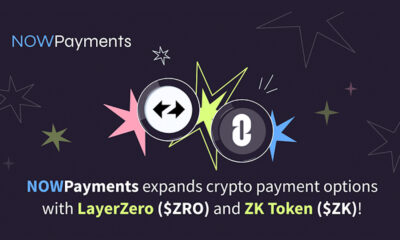
 Altcoins2 weeks ago
Altcoins2 weeks agoNOWPayments expands crypto payment options with LayerZero ($ZRO) and ZK Token ($ZK)
-

 Technologies2 weeks ago
Technologies2 weeks agoDiscover the Future of Trading with AXL Finance
-

 News2 weeks ago
News2 weeks agoAibit Launch Garners Industry Attention, Poised to Become a Rising Star
-

 Altcoins2 weeks ago
Altcoins2 weeks agoThe Covalent Network Successfully Migrates to New CXT Token to Drive Deeper Innovation in AI Following Governance Vote
-

 Business2 weeks ago
Business2 weeks agoWirex and Visa Expand Partnership to Drive Web3 Payment Adoption
-

 Blockchain1 week ago
Blockchain1 week agoData Ownership Protocol – Itheum – Launches on Solana, Embracing AI and Gaming









